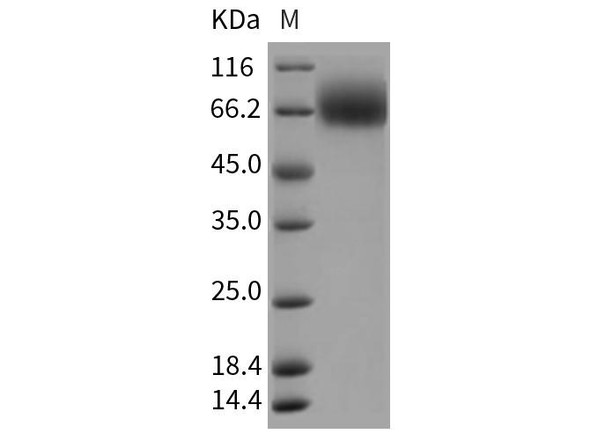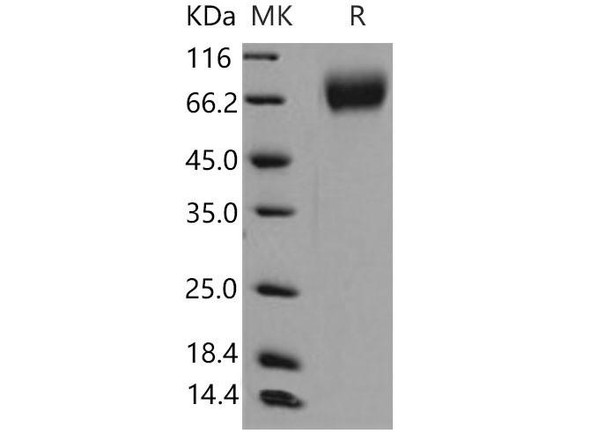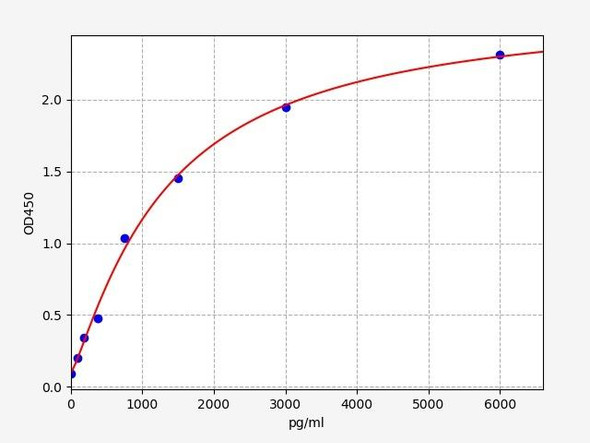Description
| Product Name: | Rat TrkB/NTRK2 Recombinant Protein (His tag) |
| Product Code: | RPES6148 |
| Size: | 20µg |
| Species: | Rat |
| Expression Host: | HEK293 Cells |
| Synonyms: | NTRK2, Trkb |
| Mol Mass: | 47.08 kDa |
| AP Mol Mass: | 60 kDa |
| Tag: | C-His |
| Purity: | > 95 % as determined by reducing SDS-PAGE. |
| Endotoxin Level: | Please contact us for more information. |
| Bio Activity: | Testing in progress |
| Sequence: | Met1-His429 |
| Accession: | Q63604 |
| Storage: | Generally, lyophilized proteins are stable for up to 12 months when stored at -20 to -80°C. Reconstituted protein solution can be stored at 4-8°C for 2-7 days. Aliquots of reconstituted samples are stable at < -20°C for 3 months. |
| Shipping: | This product is provided as lyophilized powder which is shipped with ice packs. |
| Formulation: | Lyophilized from sterile PBS, pH 7.4. Normally 5 % - 8 % trehalose, mannitol and 0.01% Tween80 are added as protectants before lyophilization. Please refer to the specific buffer information in the printed manual. |
| Reconstitution: | Please refer to the printed manual for detailed information. |
| Background: | TrkB receptor also known as TrkB tyrosine kinase or BDNF/NT-3 growth factors receptor or neurotrophic tyrosine kinase, receptor, type 2 (NTRK2) is a single transmembrane catalytic receptors with intracellular tyrosine kinase activity. TrkB/NTRK2 is a member of the neurotrophic tyrosine receptor kinase (NTRK) family. TrkB tyrosine kinase (TrkB) or NTRK2 is coupled to the Ras, Cdc42/Rac/RhoG, MAPK, PI3-K and PLCgamma signaling pathways. There are four members of the Trk family; TrkA, TrkB and TrkC and a related p75NTR receptor. Each family member binds different neurotrophins with varying affinities. TrkB/NTRK has highest affinity for brain-derived neurotrophic factor (BDNF) and is involved in neuronal plasticity, longterm potentiation and apoptosis of CNS neurons. Other neurotrophins include nerve growth factor(NGF), neurotrophin-3 and neurotrophin-4. TrkB/NTRK is a membrane-bound receptor that, upon neurotrophin binding, phosphorylates itself and members of the MAPK pathway. Signalling through this kinase leads to cell differentiation. Mutations in TrkB/NTRK have been associated with obesity and mood disorders. |






